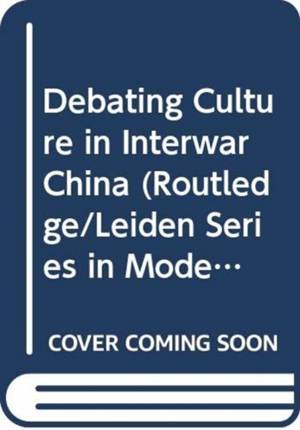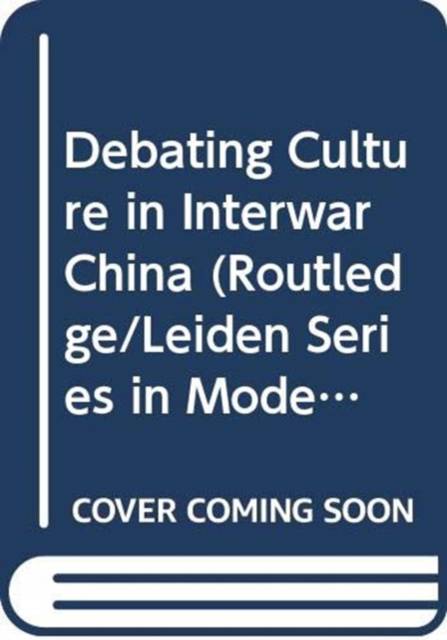
- Retrait gratuit dans votre magasin Club
- 7.000.000 titres dans notre catalogue
- Payer en toute sécurité
- Toujours un magasin près de chez vous
- Retrait gratuit dans votre magasin Club
- 7.000.0000 titres dans notre catalogue
- Payer en toute sécurité
- Toujours un magasin près de chez vous
Description
The May Fourth era (1915-1927) is considered a pivotal point in the history of modern China. This period is usually portrayed as a "Chinese Enlightenment", a period during which total change from the past was sought through the appropriation of Western science and democracy.
Conventional narratives concentrate on the dominant intellectual current of the period, the New Culture Movement, as the inspiration for social reform and political revolution. This book challenges that revolution-centered narrative of May Fourth history by showing how the propositions of New Culture were questioned and revised after the initial radical phase. Through a focus on the post-1919 debates on culture, identity, and history, this book argues that Chinese intellectuals reformulated their visions of modernity through critiques of both Occidentalism and totalistic iconoclasm. Importantly, it also argues that the global post-WWI ambivalence towards the idea of Progress in Western civilization impacted significantly on the development of the May Fourth era in its latter stage.
This book will appeal to scholars and students working in the cultural, intellectual, and political histories of modern China and East Asia.
Spécifications
Parties prenantes
- Auteur(s) :
- Editeur:
Contenu
- Nombre de pages :
- 176
- Langue:
- Anglais
- Collection :
Caractéristiques
- EAN:
- 9780415552417
- Date de parution :
- 31-12-25
- Format:
- Livre relié
- Format numérique:
- Genaaid
- Dimensions :
- 156 mm x 233 mm
- Poids :
- 452 g

Les avis
Nous publions uniquement les avis qui respectent les conditions requises. Consultez nos conditions pour les avis.






